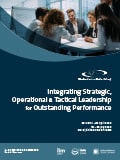Un cours intensif de formation professionnelle sur
Protecting your
Key Assets, Security
& Emergency Response Management
Pourquoi choisir cette formation ?
La structure
Cette formation complète se compose de deux modules qui peuvent être réservés en tant qu'événement de formation de 10 jours ou en tant que cours de formation individuels de 5 jours.
Module 1 - Security Management, Planning & Asset Protection
Module 2 - Major Emergency Management & Initial Response (MEMIR)
Le contenu du cours
Module 1: Security Management, Planning & Asset Protection
Day One: Issues of Security Management
- Gestion stratégique et opérationnelle
- The Management of Risk
- Gestion et prévention de la criminalité
- Management Standards
Deuxième jour : L'importance de la planification de la sécurité
- Legal Obligations
- Perte de réputation
- Planification et gestion des projets de sécurité
- Principles of Emergency Response and Recovery
Day Three: Threats to Assets
- Comprendre la perte
- Identification des points clés
- Analyse des risques
- Security Survey – Class exercise
- Intellectual Property / Computer Security
- Evacuation Planning
Day Four: Principals of Asset Protection
- Physical Security
- Perimeter Security and Access Control
- Security Lighting
- Communication and Control Centres
- Investigations / Interviewing
- Special Risks: Terrorism, Kidnap, Bomb Warnings, Search Techniques, Explosives recognition
Day Five: Implementing Asset Protection Programme
- Crisis Management Plans
- Plans de continuité des activités
- Mutual Aid
- Communication Strategies
- Dealing with the Media
Module 2: Major Emergency Management & Initial Response (MEMIR)
Day Six: Developing Major Emergency Response techniques for the 24/7 world
- Consider the full range of potential emergencies facing your industry
- Understand all the elements which are commonly encountered in a Major Emergency
- Who is the Emergency Response Manager and what should be involved in the Emergency Response programme?
- Develop the execution of decision making processes between all your stakeholders
- Apply co-ordinated planning, training, exercising and team development
- The Auditing Process - Self-Evaluation questions and Syndicate questions
Day Seven: Implementing co-ordinated Command and Control techniques
- Managing the Emergency Response, Incident Command Systems (ICS)
- Emergency Communications Centre, facilities and Information Management
- On-scene management, consider the leadership and communication issues
- Exercise: A rapidly escalating incident, what should you consider?
- Business Continuity Management (BCM) Identifying essential core functions
- Loss of essential services, what are your recovery priorities?
Day Eight: Communications, Protecting & Enhancing Company’s Reputation
- Understanding the implications and impact of Social Media
- The Toolkit – best practice examples in protecting your Reputation
- Media Management Guidelines and the Communications Checklist
- Workshop - what should be in your Communications (Media) Plan?
- Rapidly developing situation leading to information overload
- Workshop - organising and running a live Press Conference
Day Nine: Human & Environmental aspects of a Major Emergency Response
- How to manage stress in yourself and your team
- Alerting and Warning all stakeholders
- Actions: Missing or injured personnel and/or multiple casualties
- Loss of key personnel, loss of muster or refuge points
- Evacuation (or containment)
- Environmental concerns, loss of containment and effects
- Case Study followed by role playing exercise: Handling a Major Emergency
Day Ten: Exercises: Plans that have not been validated are just paper
- Case Studies, when it all goes wrong, what lessons can we learn?
- Exercise Design for the Emergency Response Teams
- Types of exercise, benefits, advantages and each potential disadvantages
- The Essential 17 Point de-brief Agenda
- Final Report, implementing the key recommendations, closing the loop
- Develop an action plan of learning from incidents, drills and exercises
Le certificat
VOULEZ-VOUS EN SAVOIRPLUS SUR CE COURS ?
© 2024. Le matériel publié par AZTech présenté ici est protégé par des droits d'auteur. Tous les droits sont réservés. Toute copie, distribution, utilisation, diffusion, téléchargement, stockage (sur tout support), transmission, reproduction ou utilisation non autorisée de tout ou partie de ce plan de cours est interdite et constitue une violation des droits d'auteur.



